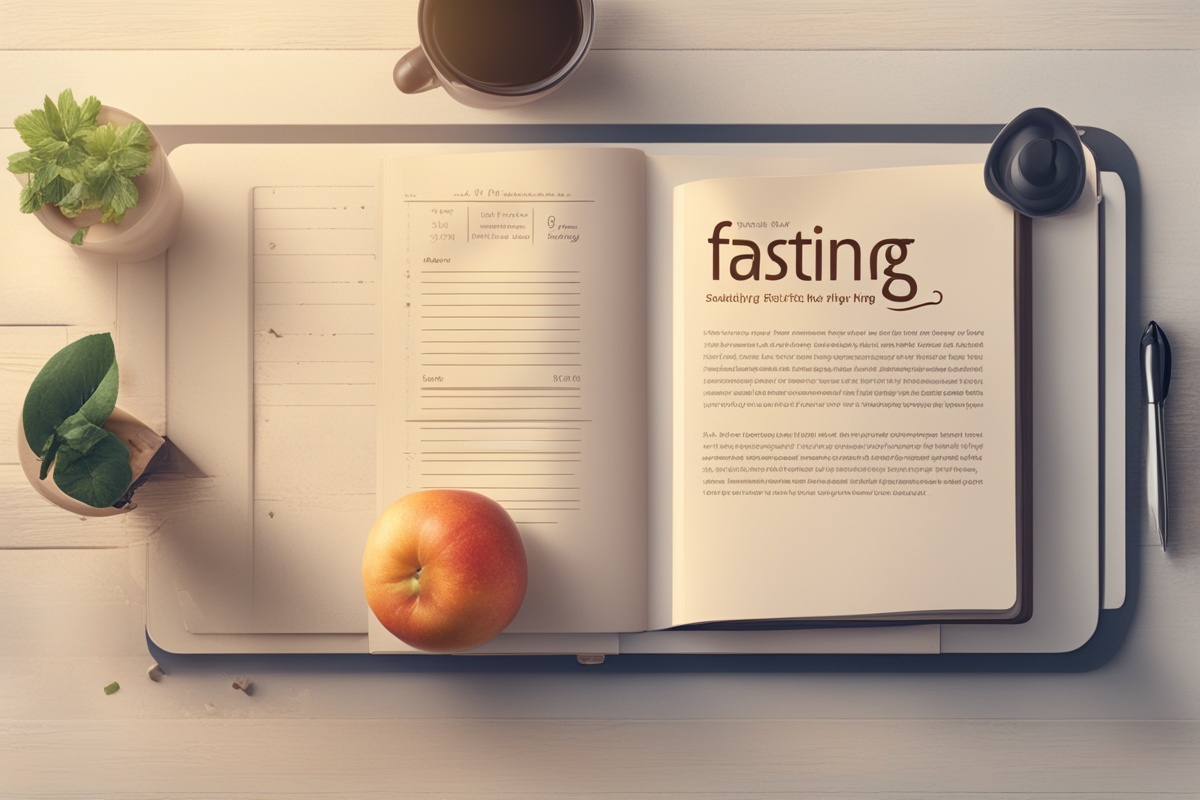Balancing fasting and work can feel like a daunting task, especially if you’re new to the practice or have a demanding job. Whether you’re exploring intermittent fasting, extended fasts, or religious fasting traditions, understanding how to integrate this health-focused lifestyle into your professional life is key to success. As someone who’s juggled a busy career while following a fasting routine, I’ve learned firsthand the challenges and rewards of this journey. In this comprehensive fasting guide, we’ll dive into how fasting impacts your body and mind at work, share actionable tips to stay productive, and explore the science behind fasting’s effects on energy and focus. Let’s navigate this path together to help you thrive both personally and professionally.
What Is Fasting and How Does It Affect Work Performance?
The Science Behind Fasting and Cognitive Function
One of the most compelling reasons to consider fasting while working is its potential impact on brain health. Research suggests that fasting can enhance cognitive function by promoting the production of brain-derived neurotrophic factor (BDNF), a protein linked to learning and memory (Mattson et al., 2018). During fasting, your brain may also benefit from reduced inflammation and improved insulin sensitivity, which can stabilize energy levels and prevent the mid-afternoon slump many professionals dread. However, it’s not all smooth sailing—dehydration or nutrient deficiencies during improper fasting can impair focus and decision-making (Pross et al., 2014). The key takeaway? Fasting can be a powerful tool for mental sharpness at work, but it must be approached with care and preparation, as outlined in this fasting guide.
Challenges of Fasting During a Busy Workday
Let’s be honest—fasting while managing deadlines, meetings, and workplace stress isn’t always a walk in the park. Hunger pangs can strike at the worst times, like during a critical presentation, and social pressures around office lunches or coffee breaks can test your resolve. Physically, you might deal with low energy or headaches if your body isn’t accustomed to fasting. Mentally, the stress of a high-pressure job can amplify feelings of irritability or “hanger” (hunger + anger). Recognizing these challenges is crucial in any fasting tutorial because it allows you to plan ahead and mitigate potential pitfalls. With the right strategies, you can turn these obstacles into opportunities for growth and resilience.
Practical Tips for Balancing Fasting and Work
Navigating fasting in a professional environment doesn’t have to be a struggle. With a bit of planning and mindfulness, you can maintain your fasting schedule without sacrificing productivity. Below are some practical tips I’ve used myself and gathered from fellow fasters to help you succeed:
- Start with a Flexible Fasting Schedule: If you’re new to fasting, try a beginner-friendly approach like the 12:12 method (12 hours fasting, 12 hours eating) before jumping into stricter protocols. This eases your body into the routine without disrupting work.
- Time Your Fasting Window Strategically: Align your fasting hours with less demanding parts of your day. For example, if mornings are hectic, consider fasting overnight and breaking your fast at lunch.
- Stay Hydrated: Drink plenty of water during fasting periods to prevent dehydration, which can sap your energy and focus (Pross et al., 2014). Herbal teas or black coffee (without sugar) can also help.
- Prepare for Social Situations: If colleagues invite you to lunch, politely explain your fasting practice or join them with a non-caloric drink to stay connected without breaking your fast.
- Listen to Your Body: If you feel overly fatigued or dizzy, don’t push through. Break your fast with a small, nutrient-dense meal and reassess your approach.
Boosting Productivity While Fasting: Work-Friendly Strategies
Fasting doesn’t just have to be about discipline—it can also be a catalyst for better work performance if done right. Many professionals find that fasting helps them avoid the lethargy of heavy meals and keeps their mind sharp. Here are some additional strategies to maximize productivity while following a fasting plan:
- Schedule High-Energy Tasks During Peak Focus: If fasting boosts your clarity in the morning, tackle complex projects then. Save routine tasks for when hunger might distract you.
- Keep Healthy Snacks Handy for Breaking Fasts: Stock your desk or bag with nutrient-rich options like nuts, fruit, or yogurt to refuel wisely after fasting.
- Use Fasting as a Mindfulness Tool: Embrace hunger as a moment to pause and breathe, reducing stress instead of letting it build during a busy workday.
- Leverage Short Breaks: Step away for a quick walk or stretch during fasting windows to boost circulation and combat fatigue.
Long-Term Benefits and Considerations for Fasting at Work
While the immediate challenges of fasting are real, the long-term benefits can make it a worthwhile addition to your lifestyle, even as a busy professional. Studies show that consistent intermittent fasting may improve cardiovascular health, reduce inflammation, and even lower the risk of chronic diseases like diabetes (de Cabo & Mattson, 2019). These health gains can translate to fewer sick days and more sustained energy for your career. However, fasting isn’t a one-size-fits-all solution. Individuals with medical conditions, pregnant or nursing women, or those with high physical demands at work should consult a healthcare provider before starting (Harvard Medical School, 2020). Additionally, overdoing fasting or undereating during eating windows can lead to burnout or nutrient deficiencies. As this fasting guide emphasizes, balance and personalization are key to making fasting sustainable in a work environment.
In wrapping up, integrating fasting into your professional life is entirely possible with the right mindset and preparation. This fasting guide has walked you through the science, challenges, and practical strategies to maintain productivity while reaping the health benefits of fasting. Remember, it’s not about perfection but progress—start small, adjust as needed, and celebrate the wins along the way. Whether you’re aiming for better focus, improved health, or simply a new way to structure your day, fasting can be a powerful ally in your career journey. So, why not give it a try and see how it transforms your work-life balance? Share your experiences or questions in the comments—I’d love to hear how fasting works for you!
References
- Anton, S. D., Moehl, K., Donahoo, W. T., Marosi, K., Lee, S. A., Mainous, A. G., … & Mattson, M. P. (2018). Flipping the metabolic switch: Understanding and applying the health benefits of fasting. Obesity, 26(2), 254-268.
- New England Journal of Medicine, 381(26), 2541-2551.
- Harvard Medical School. (2020). Intermittent fasting: Surprising update. Harvard Health Publishing. Retrieved from https://www.health.harvard.edu
- Mattson, M. P., Moehl, K., Ghena, N., Schmaedick, M., & Cheng, A. (2018). Intermittent metabolic switching, neuroplasticity and brain health. Nature Reviews Neuroscience, 19(2), 63-80.
- Patterson, R. E., & Sears, D. D. (2017). Metabolic effects of intermittent fasting. Annual Review of Nutrition, 37, 371-393.
- Pross, N., Demazières, A., Girard, N., Barnouin, R., Metzger, D., Klein, A., … & Guelinckx, I. (2014). Effects of changes in water intake on mood of high and low drinkers. PLoS One, 9(4), e94754.






